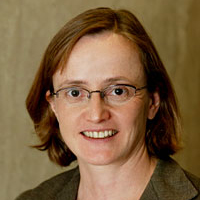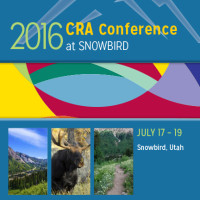Expanding the Pipeline: On-Ramping to Academia: Returning to Academic From Industry or Research Laboratories
Pursuing scientific or engineering careers in industry, government, or private research after getting a Ph.D. once was considered a one-way ticket out of academia. However, in 2008, the University of Washington’s ADVANCE program received a National Science Foundation (NSF) ADVANCE called “On-Ramps into Academia” to counter this belief. The goal of On-Ramps was to increase the pool of female faculty in STEM available to all universities by providing professional development to Ph.D.-level women in industry or research laboratories who wanted to transition into faculty positions. A popular strategy for increasing women faculty in STEM (science, technology, engineering, and mathematics) departments is to hire from other universities, but this strategy fails to increase the number of women faculty nationally.
On-Ramps workshops were held every 18 months (in 2009, 2011, and 2012). On-Ramps provided practical tools and support to 67 women who were interested in making the transition to academia from industry or research laboratories. Participants were required to be a minimum of three years past their Ph.D. and/or postdoctoral position. Computer science had the highest representation among On-Ramps workshop participants at 30%, and electrical engineering was second at 18%.
Almost all workshop speakers were female faculty members who had started their careers in industry or research labs and had successfully transitioned to academia. They provided encouragement and role models to the participants and demonstrated that a transition to academia was possible. Workshop topics included translating industry skills and research to an academic setting; building a research and teaching program; discussing why working in academia is rewarding; balancing work and family in academia; and crafting a research statement, a teaching statement, and a curriculum vitae for an academic audience. Four women computer scientists who began their careers in industry were speakers: Martha Pollack of the University of Michigan, Maria Klawe of Harvey Mudd College, and Anna Karlin and Cecilia Aragon of the University of Washington. Jennifer Rexford of Princeton University was an active board member, and four women who are now computer science faculty were participants.
In December 2015, we published a paper in the Journal of Technology Transfer about our findings from interviewing the first 10 On-Ramps workshop participants to successfully transition to university faculty or instructor positions. The data showed that the personalized advice and practical tools the women received at the workshop helped them translate their skills and experiences for academic search committees. In addition, the major reward sought by these faculty members was the ability to leverage their nonacademic career skills to effect change in the academic context. Our data also revealed three core barriers that can influence the viability of transitioning to academia, particularly for women. These barriers were: the challenges of communicating the value of nonacademic career skills in the academic context; the financial costs of the transition; and gender discrimination.
First, we learned that the women found it difficult to communicate the value of their nonacademic career experiences in the academic context. However, as one interviewee put it, “Having successful women … sit you down and say, ‘No, no, no, you have a great resume, you might want to change these couple of things, but you’re a really good fit and this is why.’ I don’t think there’s a substitute for that.… It was huge. It made me feel like I can do this.”
Second, participants were concerned about the financial impact of entering academia, and several participants did accept a lower salary at their faculty job, sometimes significantly lower. One participant stated, “So taking a step down when you start in a new field … it’s something that, it’s not easy.”
Third, because all participants had experienced gender discrimination as students in academia, they were concerned about returning to this environment. Participants reported that On-Ramps helped them both logistically and emotionally. A participant said the workshop helped her to feel confident that, despite gender discrimination, she could transition to academia on the merits of her scientific credentials: “My main takeaway that I really liked was … I should feel proud to be a woman. I should not have to apologize for not being a man.”
Once the women landed faculty positions, they expressed high levels of confidence in their abilities, value, and contributions, especially in educating the next generation of computer scientists, engineers, and scientists. Knowing what knowledge and skill sets are valued in the workplace and how innovation happens added valuable dimensions to their research and teaching. Because so many students who graduate with a Bachelor’s degree go to industry, On-Rampers bring a real-world perspective that can be useful for students.
Many of the On-Rampers also expressed high degrees of personal satisfaction in their new positions, which offered levels of autonomy and creativity that few had experienced in their previous jobs. One interviewee stated, “The one thing with academia is that you’re your own boss.” Another stated, “The intellectual freedom that you have in academia you have nowhere else.… You can set your own agenda.”
On-Ramps into Academia brings to light to a new potential pool of faculty applicants, both female and male. Data from our interviews suggest that on-ramping can create a new pool of highly qualified faculty candidates in STEM. Indeed, one participant summarized the impact of her career experiences on the classroom: “I think everything, practically, every single session I teach, that within a minute or two, I can link it to real life.” Another seconded this: “The field has moved so far in industry that there is a huge gap now…. We could complete the cycle of student learning by having people from industry seed the next generation of scientists with the skills that industry needs to move forward.” Our research findings that show some of the benefits On-Rampers bring to students, researchers, and academic institutions have implications for alternative hiring and recruitment practices in higher education. Future research could include an in-depth study of the leadership paths of On-Rampers, both women and men.
The paper can be downloaded at:http://link.springer.com/article/10.1007/s10961-015-9460-5
About the Authors:
Coleen Carrigan is a feminist anthropologist and an assistant professor of Gender, Race, Culture, Science and Technology Studies at Cal Poly, San Luis Obispo. She earned her Ph.D. in Sociocultural Anthropology at the University of Washington (UW) and was a postdoctoral scholar at the UW ADVANCE Center for Institutional Change. She investigates the historical and cultural dimensions of science, technology, engineering, and mathematics (STEM), with a particular emphasis on computer science and engineering, and why these high-status fields appear impervious to desegregation. Her research has been funded by the National Science Foundation, the Luce Foundation, the Cal Poly Provost’s Office, the Cal Poly Center for Expressive Technologies, and the American Association of University Women.
Eve Riskin received her B.S. degree in electrical engineering (EE) from MIT and her graduate degrees in EE from Stanford. Since 1990, she has been in the EE department at the University of Washington where she is now associate dean of diversity and access in the College of Engineering, professor of electrical engineering and faculty director of the ADVANCE Center for Institutional Change. With ADVANCE, she works on mentoring and leadership development programs for women faculty in STEM. She was awarded a National Science Foundation Young Investigator Award, a Sloan Research Fellowship, and the 2006 Hewlett-Packard Harriett B. Rigas Award. She is a fellow of the IEEE.
This research was funded by the National Science Foundation, grant number: NSF: HRD -0819407. Any opinions, findings, and conclusions or recommendations expressed in this material are those of the authors and do not necessarily reflect the views of the National Science Foundation.










